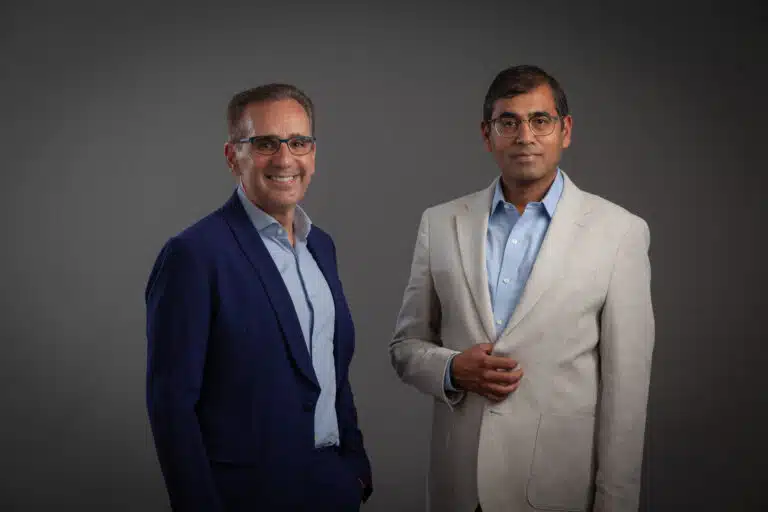- The Great Resignation, impending retirement boom, and an aging population will contribute to the 2.1 million shortage
- High-performing healthcare organizations have more technical skills, transformation skills, and systemic people-management skills than slower-adapting counterparts
- Thanks to technology automation and augmentation that absorbs tasks not specific to nursing (i.e. admin and medication delivery), advanced healthcare providers need 20 percent fewer nurses today and can offer more fulfilling work
The United States is facing an unprecedented labor shortage in nursing in just two to three years — unless healthcare organizations take a radical new approach in managing their workforces with the help of talent intelligence.
That was the message Josh Bersin delivered during the launch of the first report from the Global Workforce Intelligence Project at HR Tech. The first industry-specific report focuses on healthcare, exploring the impending nursing shortage of potentially 2.1 million care providers.
“The findings are groundbreaking in their scale and in their unequivocal implications,” said Bersin, Global HR Research Analyst and CEO of The Josh Bersin Company, during his GWI Project session at HR Tech. “If healthcare organizations continue doing what they’ve always done, they simply won’t be able to close the current resource gap — that’s implausible now. They need to change the work itself, redesign employment models, and rethink how people are deployed to opportunities.”
Nursing shortages imminent without AI-powered talent solutions
While the study shows the gap in nursing may only register as a net-new demand of 200,000 nurses, market factors will create an actual gap that will boost that number to approximately 2.1 million by 2025.
Bersin said the standard approach of recruiting, retaining, and reskilling healthcare employees will be insufficient, leaving about 800,000 critical roles open.
The GWI Project used Eightfold data to explore this impending nursing shortage and the best ways to counter it. In the research, they identified a new healthcare operating model, recommending a combined approach of systemic people solutions inclusive of organizational redesign to address the problem.
Healthcare organizations must look to technological automation, human augmentation, and the re-engineering of clinical delivery to reduce the demand for nurses if they are to survive this shortage. The GWI Project found that up to 48 percent of the work required to successfully close gaps in clinical capability today is through redesign of work, jobs, and employment models — not through traditional approaches to recruiting and training.
Related: Watch the video about the GWI Project featuring Josh Bersin and Eightfold AI President Kamal Ahluwalia.
Most organizations don’t have the internal structure of expertise to redesign work on their own. GWI Project analyses showed that high-performing healthcare organizations have four to five times more transformational and organizational redesign practices and technology roles than non-advanced counterparts. They also invest in total talent software solutions rather than individual tech tools to close the gap.
As a result, GWI Project research found that advanced healthcare systems need 20 percent fewer nurses and administrative roles to deliver patient care. All told, up to 1 million nursing jobs could be streamlined through automation, technology enablement, or offloading work to other non-clinical workers.
“Healthcare used to be considered a decade behind other industries in its ability to manage people and talent,” said Kathi Enderes, Senior VP of Research at The Josh Bersin Company and author of the study. “Now, driven by necessity, we see more innovation and strategic practices than in any other industry. Building career pathways within and outside of the organization, fostering health and well-being of nurses to retain them in the industry, and holistically redesigning work, jobs, and organizational models are all part of this.”
The first of many planned GWI Project studies covering several industries, this healthcare report used Eightfold data, the world’s largest AI-driven database of workforce job roles, skills, career pathways, and HR program maturity. In addition to reviewing over 1.4 million people profiles of healthcare workers in more than 300 companies, the GWI Project also features qualitative interviews with CHROs from over 20 top healthcare organizations, including Providence Health, Bon Secours Mercy Health, and Stanford.
Related: Read more from Josh Bersin about how the future of work will be driven by talent intelligence.
By tapping into qualitative and quantitative methods, this is the first time this methodology has been applied on such a vast scale in a healthcare setting to help C-Suite and other healthcare leaders make better-informed decisions about the future of their workforces.
“The labor shortage is a real crisis for healthcare,” said Greg Till, Chief People Officer, Providence Health System. “We can’t address it if we don’t think and act fundamentally differently. Beyond attracting, developing, and retaining talent in new ways, we need to fundamentally transform the work.”
For more information about how the future of work will be driven by talent intelligence, read the latest white paper from The Josh Bersin Company, Understanding Talent Intelligence: A Primer.



